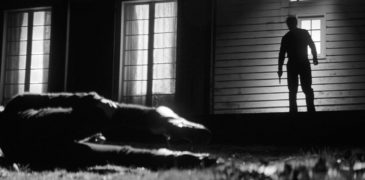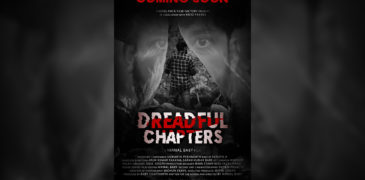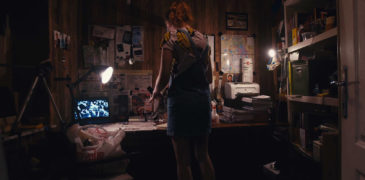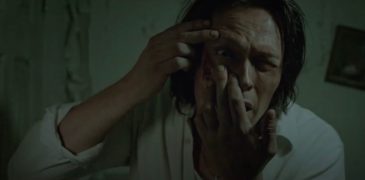
1996’s Scream was a game-changer for the slasher genre. By playing with well-established conventions, the movie directly engaged the audience in a conversation about what they were watching and toyed with their expectations. This self-aware approach rejuvenated the slasher for critics and public alike, summoning a tidal wave of copycat films. This meta approach became standard for the neo-slashers, the subgenre Scream and its followers would live under.
Quick to realize they were standing on the shore of an ocean of money, filmmakers and studios began looking for projects to ride the wave that Scream had created. Writer Ken Selden and director Geoffrey Wright hoped their own neo-slasher, Cherry Falls, would take the genre even further by combining teen-sex comedy hijinks with gruesome murders, think Porky’s, but taking place at Camp Crystal Lake. They hoped mixing the two at a giant, school-wide orgy, would make Cherry Falls a winner.
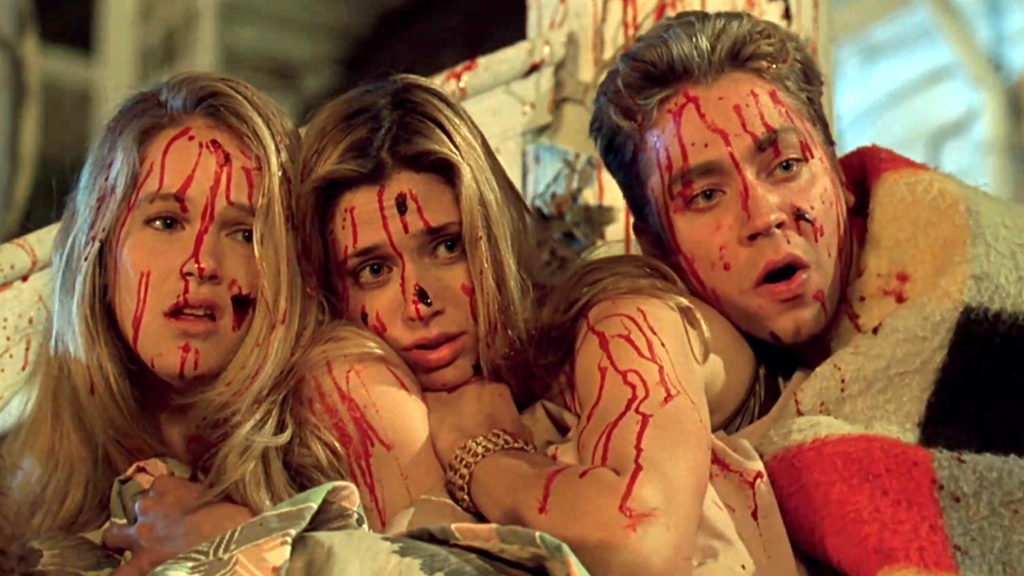
Abruptly, the tide of public opinion turned, creating an undertow that forced unwelcome changes on the newly completed film. In 1999, after a series of violent crimes linked to the original Scream and the horrific Columbine High School Massacre, parents began clamoring for changes in the movie rating system to diminish teenage access to violent content. Because of this outcry, the Senate investigations they created, and the MPAA’s unwillingness to give the movie an R-rating, USA Films, Cherry Falls’s distributor, removed much of the sex, violence and gore from the final film, reducing it to made-for-TV levels.
A serial killer is stalking the high school students in the town of Cherry Falls, brutally murdering them and fashioning gruesome tableaus out of the bodies. When word gets out that the killer is only targeting virgins, the students of Cherry Falls High School plan a party to lose their virginity en masse to save their own lives. After surviving an attack by the killer, Jody Marken (Brittany Murphy) daughter the town sheriff (Michael Biehn), suspects that her father and his friend, school principal Tom Sisler (Joe Inscoe), know more about the murders than they are admitting. The killer chases Jody to the party where are they struggle again and she throws the killer out a second-story window.
There are a lot of great things to like about this movie! As the final girl, Brittany Murphy’s performance is easily the best part of the movie. She brings a chaotic enthusiasm to the role of a character who, while stuck in the odd space between childhood and adulthood, projects an integrity and feistiness that stands out from the murky morals and motives of her peers and the surrounding adults. Her transformation to the final girl is unique and belongs to her alone.
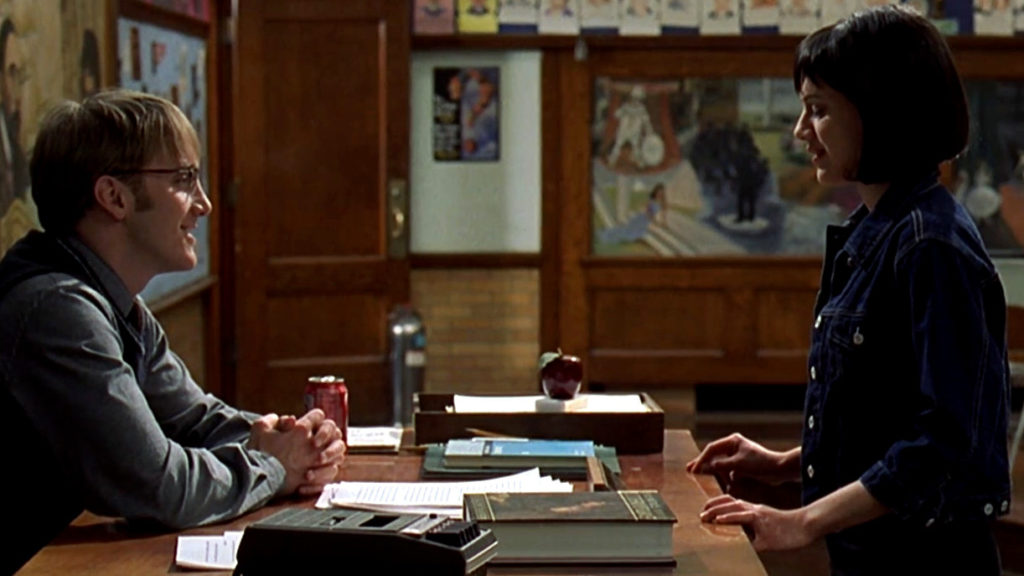
Besides reversing the prohibition against teenagers having sex, Cherry Falls refashioned the Jody into an unusual final girl. While she toys with the idea of losing her virginity, she consistently remains firm that it is her decision to make and will not be pressured either way by her parents, her boyfriend, or even the killer. Selden and Wright’s approach to the transformation of the final girl differs from the typical changes she makes. In older slashers, the weapons used take on highly symbolic significance. Critics and film theorists have written plenty about the subtextual significance of the final girl picking up her own, penetrative weapon. It stands in for castration of the killer and theft of his penis, turning her into a male figure. In Cherry Falls, Jody defeats the killer not by stabbing him, but by throwing him out a window. She never picks up a weapon, relying on hand-to-hand combat lessons taught to her by her father. In short, she avoids becoming what Carol Clover said is “the male viewer’s use of her (the final girl) as a vehicle for his own sadomasochistic fantasies.” (Men, women, and Chain Saws, 1992, page 54) The only other final girl that comes close to avoiding this transformation is Nancy from Wes Craven’s Nightmare on Elm Street (1984). She defeats the killer, at least in the first film, by losing her fear of him and therefore rendering him powerless.
Besides fighting for the lives of her peers, Jody also struggles with the secretive and hypocritical nature of the adults. Her investigation reveals that her father, the sheriff, Principal Sisler, and her English teacher (Jay Mohr) are complicit in the crimes and the killer’s origin. Because of the principal’s discomfort with the concept of sexually active teens, he argues to withhold the nature of the killings from the public, appearing to favor the deaths of his students over a frank discussion about the dangers of remaining a virgin.
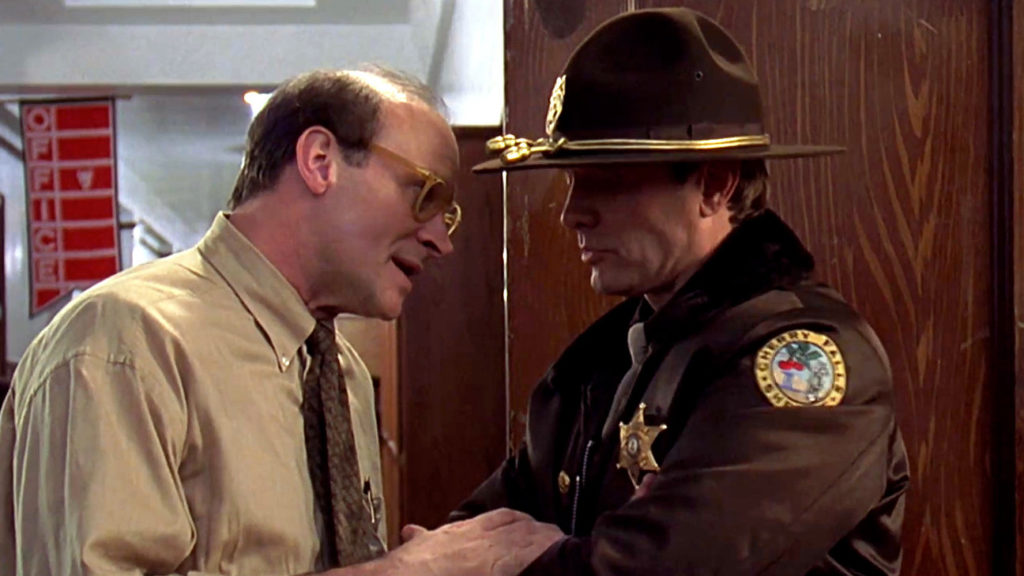
Because the MPAA would not give Cherry Falls an R-rating, and USA Films wasn’t willing to release it with an NC-17 or X rating, the film underwent severe cuts to remove naked bodies and blood. Unfortunately, these changes deprived the audience of the visceral thrill they had expected and made for a weaker film. Ironically, this willingness to conform to public pressure is the opposite of Jody’s refusal to give into peer pressure.
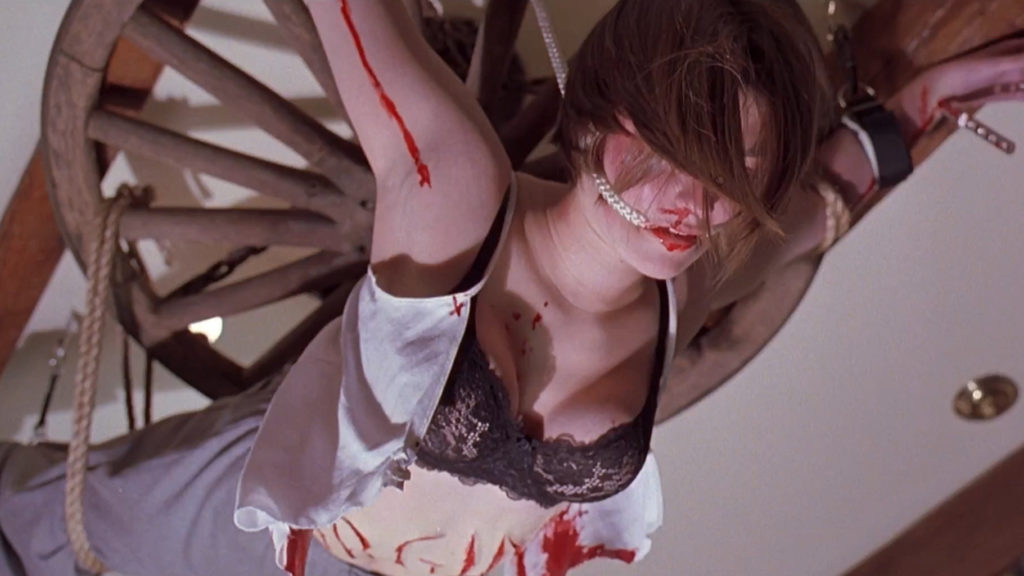
Made during a renaissance for slasher films, Cherry Falls was, if not a game-changer, at least it was an example of the new ways the genre was defining itself. Reversing the sex-taboo made room for new conversations about gender and sexuality. Also, unlike the final girls before her, Jody’s journey more closely resembled the hero’s journey with her ending as a stronger and wiser version of herself, as opposed to previous final girls whose journeys left them damaged, shaken, and often still vulnerable Into the next film, Halloween’s Laurie Strode and Scream’s own Sidney Prescott notwithstanding. This gives Cherry Falls an unexpected heart and soul that speaks to the difficulty of transitioning from childhood into adulthood.
More Film Reviews
George Carlin has a great routine about the nature of prayer. It can’t be done justice here, though it does arrive at the conclusion that God must have an awful… Nollaig Shona Duit! Sheng Dan Kwaile! Happïkurisumasu! Straight Outta Kanto here reminding you that a fright before Christmas is a tradition dating back to the Victorian era. From Charles Dickens,… There’s an inherent restlessness in the face of the unknown, perpetually stoking curiosity. Intentionally or otherwise, this very restlessness is what renders Dreadful Chapters a compelling viewing experience. Hailing from… Dealing with an abnormal form of tinnitus, a young IT worker begins a series of experiments to figure out the abnormal nature of his condition. Bringing various objects into his… The Breach is a 2022 Canadian cosmic horror, written by Nick Cutter and Ian Weir, and directed by Rodrigo Gudiño. The film is based on the novel The Troop, originally… Being mostly an American tradition, fraternities seem to be full of real life horror stories due to the harsh hazing rituals regularly to new pledges. These organisations seem to be…The Righteous Film Review: Fantasia Festival 2021
Ju-On White Ghost and Black Ghost Movie Review: Christmas Horror!
Dreadful Chapters (2023) Film Review- Not so tasteful nor dreadful
Masking Threshold (2021) Film Review – Madness up Close
The Breach (2022) Film Review – Into The Breach Once More
Hell Night Film Review – A Hybrid of Slashers and Haunted Houses
I am a lifelong lover of horror who delights in the uncanny and occasionally writes about it. My writing has appeared at DIS/MEMBER and in Grim magazine. I am also in charge of programming at WIWLN’s Insomniac Theater, the Internet’s oldest horror movie blog written by me. The best time to reach me is before dawn.
